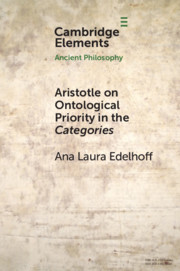1 results

Aristotle on Ontological Priority in the Categories
-
- Published online:
- 23 October 2020
- Print publication:
- 19 November 2020
-
- Element
- Export citation

